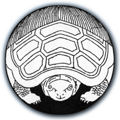I'm delighted to say that I've been invited back to Hedgebrook to do another Master Class this summer! Here's the blurb:
A writer’s mind is her most important tool. We rely on our minds to be quick and associative, dogged and diligent, and above all to maintain the quiet, steady focus necessary to reach into the heart of our text. The mind’s enemy is skittery distraction in all its myriad forms, and in these days of email, Internet, and information overload, as writers, we are often fighting for our attention and our sanity. This workshop will offer practical training in re-focusing the mind through meditation, using contemplative exercises designed to deepen our expression and to allow us access to untapped areas of imagination and experience. We will look at aspects of the writing craft from a contemplative perspective, investigating ways of delving more deeply into point-of-view, metaphor, sensory imagery, characterization and plot. We will leave with writing and meditation practices to keep our most precious tool well-honed, focussed and responsive. Participants should come with writing projects in progress, or well-formed ideas for projects to start while in residency.
Here's the backstory:
Last February, I went to Hedgebrook for a residency to work on a stalled novel. In my cottage I had no access to the Internet. There was no wifi, no ethernet, and no way to get online while I was writing. It didn't take long before my mind started going through a withdrawal that was as intense and uncomfortable as the one I'd experienced when I quit smoking. The sensations, although mental, felt almost physical. I could feel my mind reaching outside itself, like a hand groping for a cigarette. I was shocked. As a writer and a longtime meditator, I'm accustomed to tracking the nuances and subtle movements of my mind, but I'd had no idea that my mind had morphed into such a cyborg. Unplugged, it felt bereft, incomplete, and horribly unsure of itself. And suddenly I realized this was why my novel had stalled. This is why I kept losing momentum and traction, and couldn't seem to finish. Somehow, my mind had lost faith in its ability to hold fast to the myriad complexities needed to conjure a fictional world. It had grown impatient and clumsy. It could no longer penetrate and go deep.
It took me a week or so to begin to settle down, and in that time, I rediscovered some of the patient focus and clarity of mind that I remember from my pre-wired days. This workshop is an outgrowth of that experience and incorporates some of the practices I've instituted in my own writing life to keep me connected but not overwhelmed. Many of these are writing and meditation techniques designed to nudge the mind from its habitual ruts and patterns of expression, and I thought it would be helpful to share them, since they seem to work. In the months since the retreat ended, I've finished a draft of the novel. It feels good to have my mind back.
This workshop is part of the Hedgebrook Women Writers Master Class Retreat Series. Hedgebrook is a retreat center for women writers, and all proceeds from these workshops go to subsidize the Writers in Residence Program. You can find information about registration at the Hedgebrook website, but here's the basic idea:
THE EXPERIENCE: 7 days at an idyllic world-renowned women writers retreat on Whidbey Island, and exceptional writing workshops with a celebrated writer. Each resident writer is housed in her own handcrafted cottage in the woods with a sleeping loft, work area and wood-burning stove. Meals are prepared by Hedgebrook’s in-house chef using fresh produce from our organic garden. The 48-acre retreat features forest walking paths, ponds and meadows, views of Puget Sound and Mount Rainier, and quiet areas for writing, reading and meditating. A beautiful beach and charming seaside village are nearby.
“Hedgebrook isn’t a retreat…it’s an advance.” - Gloria Steinem

